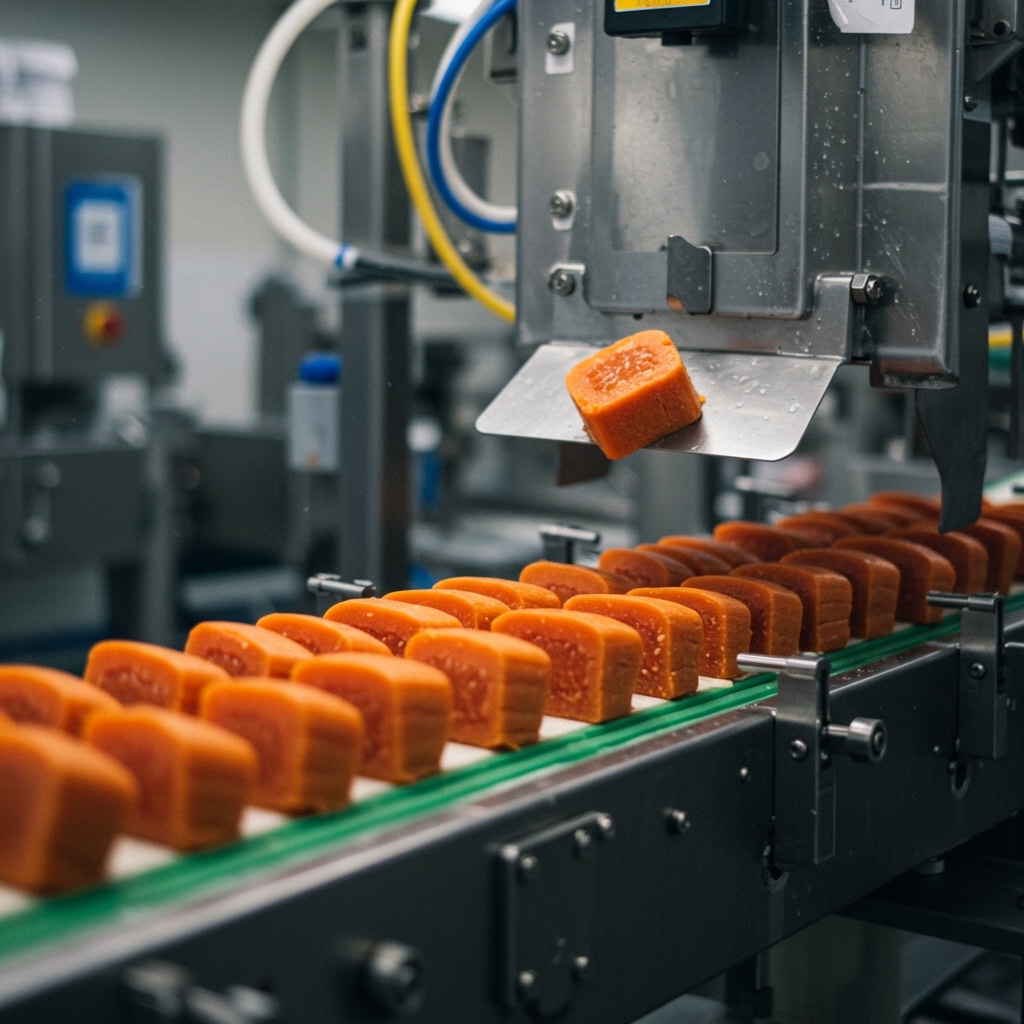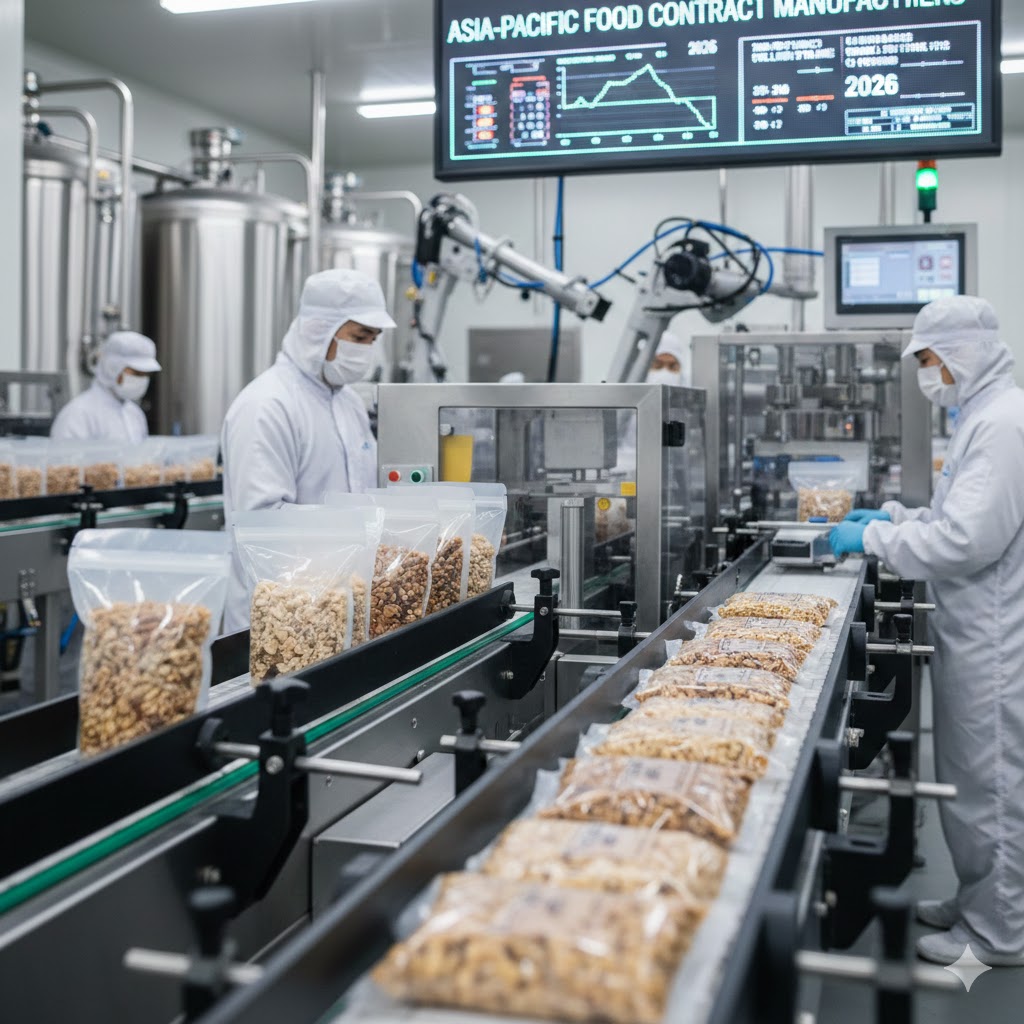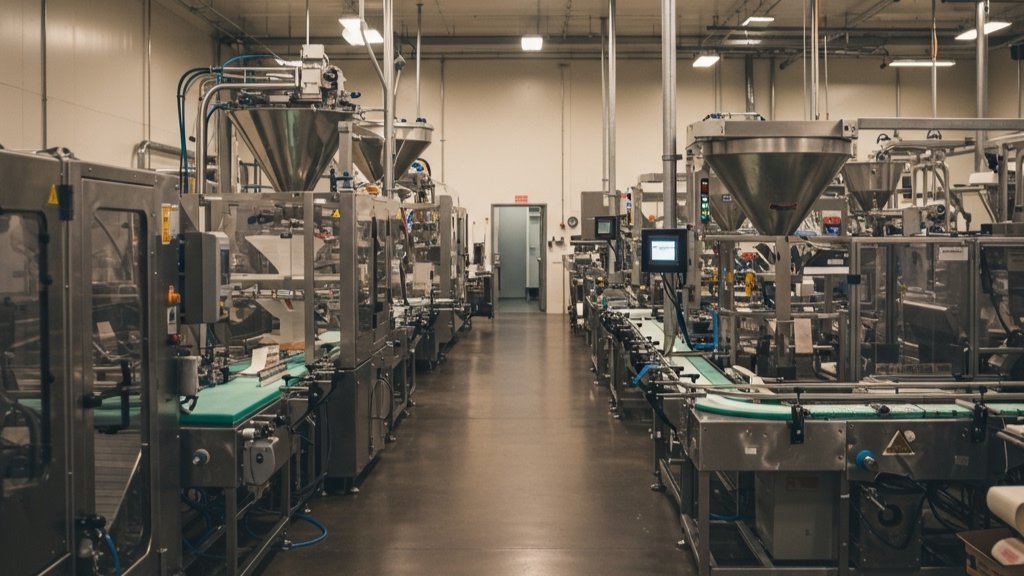Japan needs food. But how the nation eats led the country’s food self-sufficiency to record low and threatens its future food security. Among the challenges the country faces, the population’s unsustainable meat consumption is a priority. With plant-based meat in Japan growing strong, green protein could offer a sustainable solution.
Since March 2020, the novel coronavirus pandemic has deeply disrupted Japan’s meat import volumes from the United States and Australia with a significant drop (over 84% in June only) compared to 2019. This unprecedented crisis could be the wake-up call Japan needs to consider a more sustainable food supply system.
Parallel to the decline of meat imports, plant-based meat appeared a suitable and sustainable alternative to animal products in Japan. What used to be a niche market for a long time is now becoming more visible.
Can plant-based meat become mainstream and be embraced as a sustainable food source in Japan? Recent market trends seem to confirm that a shy but steady green revolution is in the making in the country.
The unsustainable rise of meat consumption in Japan
Japan’s traditional diet (washoku) would fit well with today’s urgent calls for more sustainable food habits. Washoku dishes are based on rice and seasonable ingredients. This cuisine is also characterized by the low consumption of animal products and the high consumption of soybean products. For centuries, how Japanese people ate was respectful of the environment.
But after the end of World War II, Japanese people were starving. The country urgently needed to feed its population. That meant putting more animal products on their plates. A drift shared worldwide in the last 60 years. Japan’s miraculous economic growth and the development of the consumer society accelerated the shift towards a more Westernized diet.
Today, Japan’s appetite for meat has grown to the point where the country’s domestic production can barely satisfy half of the country’s demand. In 2018, Japanese consumers ate nearly 20% more meat than two decades ago and roughly 160% more than in 1975.
The shrunken domestic production, land scarcity, heavy reliance on imports—the environmental costs associated with such dietary choices—force Japan to rethink its carnivorous diet. The country would need to consider a more sustainable food consumption where both local and global food security are not compromised. Ensuring food security is one of Japan’s top policy objectives. Numerous strategic measures and community programs have been crafted to improve food education and encourage responsible food choices.
In 2020, Japan’s Ministry of Agriculture, Forestry, and Fisheries (MAFF) established a “Food Tech Study Group” to diversify protein sources in the Japanese diet. On their action ‘menu’, the group works on increasing plant-based meat consumption in Japan.
Burgeoning demand for plant-based meat in Japan
The country which birthed high-end Wagyu beef is, at last, experiencing a nascent shift in social attitudes towards the current level of meat consumption. If the trend has been lagging behind in Japan, compared to Europe or North America, the increasing popularity of a more ‘green’ diet is promising.
Statistically, vegans and, more broadly speaking, vegetarians and flexitarians are still largely a minority. However, growing awareness about ethical, environmental, and health concerns encourages Japanese consumers to shift from animal-based to plant-based food products.
In 2019, the Japan Meat Information Service Center conducted a survey that revealed that at least 50% of the population was aware of products alternative to meat. The overall image of plant-based meat substitutes was also rather positive. Nearly 60% of the respondents were ready to consume greener for their health and the planet.
A year later, another study specifically conducted on soy-based meat showed that consumer awareness jumped to over 70%. By August 2020, at least 1 out of 4 consumers had tasted a vegetable alternative to meat once. The figures further revealed that consumers cook plant-based meat at home (68%) but also eat meat substitutes at restaurants (30%) and cafes (18.2%).
Leading companies drive the shift to plant-based meat in Japan, and it’s happening fast despite meat-eating habits inertia.
The rising awareness of meat alternatives isn’t unique to Japan but is part of a global movement, with the Asia-Pacific region is the fastest-growing market. Experts forecast a growth rate of at least 9.4% a year until 2025 in that region only.
By 2019, Japan’s Ministry of Agriculture, Forestry, and Fisheries already listed up to 12 domestic plant-based meat makers. The Ministry noted the consumption increase seemed to be explosive. Retailers also appeared largely in favor of the development of new products for their shelves. When the pandemic hit the world, Japan was already on the path for sustainable protein food sources.
The meat supply chain disruption in 2020 was the large push the movement needed to take off. Japan saw a wave of new soy-based meat products launched on the market. Major Japanese food producers such as NH Foods Ltd., Itoham Foods Inc., and Marudai Food Co. put more weight into their product development and planning. We expect the release of more plant-based meat products in Japan in the coming months.
Here are some of the products that became mainstream enough to be found in most supermarkets in Japan.
Marukome
Marukome Co., Ltd, one of Japan’s oldest and top miso paste producers, launched their Daizu Labo (Soybean Laboratories) brand, which features over 30 soy-based substitutes for animal products, eight advertised as ‘meat’ (ready to eat, dried, and frozen).

Maisen Genmai
Maisen Fine Foods Co., founded in 1992, gradually expanded its business from organic brown rice to rice-based and allergy-friendly food products. In 2016, they launched a series of gluten-free soybean and rice-based meat products: veggie fillet and veggie minced. Limited to online sales and a few selected stores at first, their products can now be bought from a wide range of retailers.

The growing popularity of plant-based meat enabled the development of a wider range of products, particularly in the snack market segment. Plant-based meat offers an interesting angle that resonates with the wellness and health trends.
Kabaya
Kabaya Foods Corporation, a confectionery company, founded in 1946, launched a soy-based jerky in 2018 with the slogan “a new era of snack is coming.” Their product is advertised as an excellent source of protein, rich in fiber, that will go along well with Japanese people’s beloved beer.

Food chains are jumping on the plant-based meat bandwagon in Japan
Understanding the time was right, several major restaurant and coffee chains tested the water in Japan and successfully launched plant-based products.
Mos Burger’s soy patty has been around since 2015
Mos Burger is a pioneer when it comes to soy-based patty. Their first attempt to go green goes back to March 2015. The burger chain had launched a limited-time ‘soy patty’ with a sales goal of 300,000 from March to mid-May. The goal was reached within 3 weeks, exceeding the chain’s expectation and convincing its leaders to make it a permanent option on their menu nationwide.

In May 2020, Mos Burger released the ‘Mos Plant-Based Green Burger,’ a burger entirely suitable for vegans and Buddhists, prohibited from eating onions and garlic. The company explained that it took over a year and a half of development to get the right combination of ingredients. They also came up with a new soybean-based patty with a texture closer to real meat.

Freshness Burger’s homerun
Mid-level player among the burger chain heavyweights Mc Donald’s and Mos Burger, Japanese chain Freshness Burger gathered some positive attention last August when they launched their vegan ‘Good Burger.’ The Good Burger, made with a soy-based patty, was initially sold only in their Tokyo store, the chain aiming to give the green trend a try. With sales double the chain’s expectations, the burger was such a hit that Freshness Burger started selling it nationwide from October—barely 2 months after the launch in Tokyo.

Coffee shop chain Doutor’s move towards a veggie-friendly menu
In March 2020, the Japanese coffee shop chain Doutor discreetly test-marketed a plant-based meat sandwich in 20 stores. The chain hoped to increase its consumer base by appealing to people embracing a flexitarian lifestyle. They didn’t advertise this ‘greener’ but not a vegan-friendly option during the testing phase. Word of mouth worked, and they received a tremendous amount of feedback from their customers, with calls for a 100% vegan option.
Doutor spent six months developing a sandwich entirely free of animal-derived ingredients while not compromising the taste. They finally launched their Japanese-style soybean meat sandwich in September 2020, which met a surprising success with both gender and all age groups. Doutor is considering expanding its meat-free menu in the future.

In recent years, restaurants, casual dining venues, and major fast-food chains such Coco Ichiban'ya and Kyushu Jangara joined the plant-based party. Sensing that substitutes for animal products generate interest and become more common, they’re adding ‘meat-free’ sections to their menus to cater to the veggie population.
But plant-based meat substitutes present some challenges with taste, the number one barrier for customers.
Japan on the lookout for new food technology to improve plant-based meat’s taste and texture
To capture the interest of mainstream consumers with no dietary restrictions but opting to go green, companies work hard on improving plant-based meat’s tastes and textures.
The challenge, however, is that this segment of consumers is particularly looking for substitutes that will replicate the ‘real’ thing, juicy and meaty. So, parallel to this green meat revolution, the demand for food technology is also increasing.
Freshness Burger’s Good Burger was developed in partnership with a startup, Daiz Inc. Their AI system creates tastes and textures for foodservice companies. They help develop plant-based meat for processed foods such as dumplings, patties, nuggets, and so on. Daiz strives to develop meat-like umami that will closely match the taste of chicken, pork, and beef.
On top of major food companies developing their R&D, IT-related startups also join the plant-based meat industry. After three years of incubation, the Japanese start-up Next Meats launched mid-summer 2020. They dream big and are expanding quickly on the domestic market, but also abroad.
Green is getting ‘gold’, and projections show the industry may account for 25% of the entire meat market by 2040.
The time is right to push for plant-based meat products in Japan—and help build a more sustainable food system.
Food sustainability is a global priority on all countries’ agendas. Changing how we produce and consume food is critical for environmental, economic, and social factors. Like the rest of the world, Japan needs to source alternatives to animal products. At GourmetPro, we believe that plant-based meat and, generally speaking, sustainably sourced plant-based products are strong candidates for tomorrow’s supermarket shelves in Japan.
For both food services and food retail, it’s less a matter of wherever they will move towards more sustainable food choices but a matter of when. In Japan, the time feels right to launch new and innovative products & flavors into the market to meet the ever-increasing consumer base. Do you or your company produce meat alternatives? Our experts can support your Japan entry today.


%206.png)
.svg)






.svg)



.svg)
.svg)
.svg)

.svg)






































































.png)




























